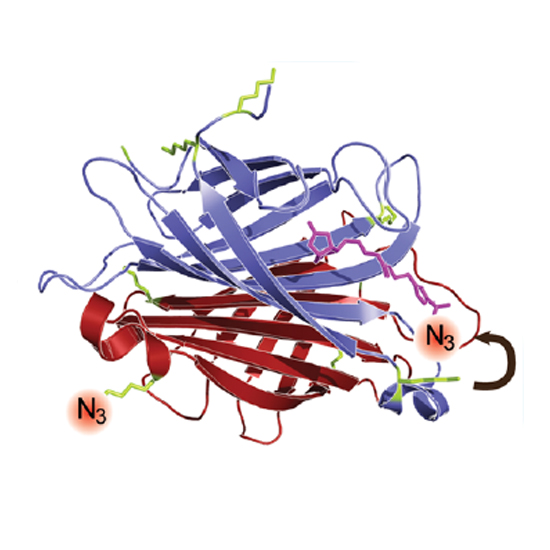Targeted Diazotransfer Reagents Enable Selective Modification of Proteins with Azides
29-Mar-2017
Bioconjugate Chem., 2017, 28 (4), pp 913–917, DOI: 10.1021/acs.bioconjchem.7b00110
Bioconjugate Chem., online article
In chemical biology, azides are used to chemically manipulate target structures in a bioorthogonal manner for a plethora of applications ranging from target identification to the synthesis of homogeneously modified protein conjugates. While a variety of methods have been established to introduce the azido group into recombinant proteins, a method that directly converts specific amino groups in endogenous proteins is lacking. Here, we report the first biotin-tethered diazotransfer reagent DtBio and demonstrate that it selectively modifies the model proteins streptavidin and avidin and the membrane protein BioY on cell surface. The reagent converts amines in the proximity of the binding pocket to azides and leaves the remaining amino groups in streptavidin untouched. Reagents of this novel class will find use in target identification as well as the selective functionalization and bioorthogonal protection of proteins.











